I suppose walking out in the midst of an argument is not a mature option. But walking out, leaving, even disappearing in order to carve out some sense of freedom? That, I believe, is an act of power when no other option remains. Sometimes, it’s a literal act of survival, and sometimes it’s not the survival of our bodies that’s at stake but of our deepest selves—and who’s to say those two things will remain separate?
In my new novel, The Den, one character disappears. I suppose she doesn’t have to. She’s not in a war-torn country, she’s not destitute (yet), she does have a family that she could—ostensibly—go back to. Instead, she vanishes. As a young woman stripped of all agency, it’s the one act that no one can take away from her. And once I started looking for more examples of people who leave because it’s the necessary step toward some sense of freedom, I saw them everywhere.
Here are 10 books in which the characters leave not as a copout, but as the ultimate act of power of the self:
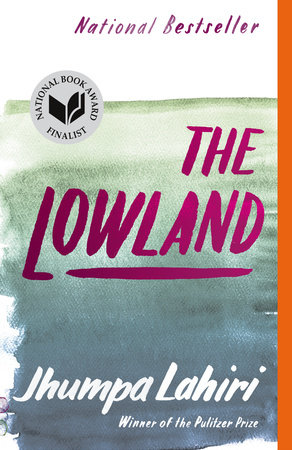
The Lowland by Jhumpa Lahiri
There’s lots of leaving here—leaving one’s home, one’s country, one’s family—and there’s also lots of returning. But in this novel, there’s one particular act of disappearance that most interests me: the mother leaving her child for her own mental health. We see fathers do this so often, and this exquisite novel forces us to look at the way we judge mothers so much more harshly for that same act.

This Is How It Always Is by Laurie Frankel
This is the kind of novel that reminds me of why we read fiction—to see the truth. Here, a family stumbles along the complex path of raising a transgender child. In a sense, the leaving is brief—two characters go elsewhere for a short period of time—but in another sense it’s constant. Leaving one’s identity, leaving it again, restructuring it, all the while never being able to get away from who we really are.
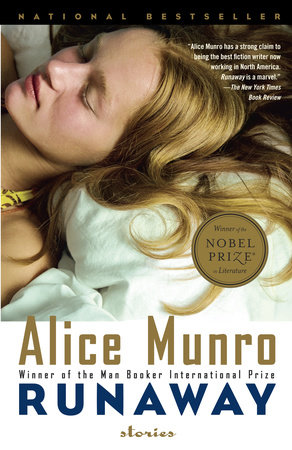
Runaway by Alice Munro
The title itself instills so much power. It’s not a command given by someone else: run away. But then is it the adjective, connoting a personality trait, or is it the noun, describing the person herself? There are so many runaways here. There are failed escapes, there are all too successful escapes. And just when we think we’ve left a story in the collection behind, its characters reappear, sometimes with entirely new identities.
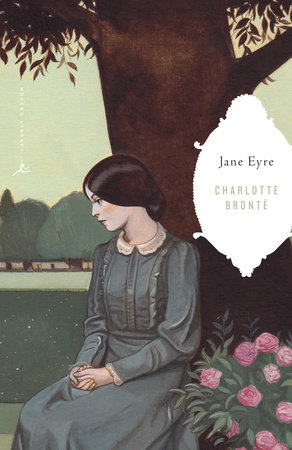
Jane Eyre by Charlotte Bronte
I can’t find a woman in literature before Jane Eyre who runs away as she does. That woman must exist somewhere in the world’s literature, but so far in my reading, Jane is the first, and her act is one of such power. Her choice—to live up to her moral code or to stay with the man she loves, despite his indiscretion—does not leave this steadfast and independent woman a choice. She casts out alone, and never mind that she ends up with him—those few days of her wandering the windswept landscape, hungry and alone, are some of the bravest I’ve read.

Perma Red by Debra Magpie Earling
This one is the epitome of a particular type of leaving—the kind women do because they have no other options for power. Louise is constantly leaving. She leaves her family, men, her home, her reservation, and sometimes, it seems, even herself. She also returns over and over again, and in that this lyrical book forces us to ask so many questions about what it means to love, to belong, to rise up and become.
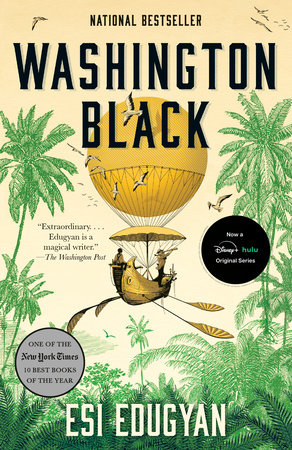
Washington Black by Esi Edugyan
Like a true adventure, this book is constant movement—from plantation to ship to Canada to the Arctic. The leaving is very literal, and necessary—Titch, the protagonist, escapes the bondage of slavery. But this extraordinary book also examines the freedom of the mind, the existential leaving we must do to carve our freedom.
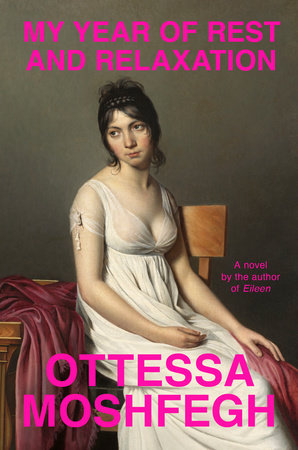
My Year of Rest and Relaxation by Ottessa Moshfegh
Leave society by just taking pills and sleeping for a year? Why not? For me, this book moved from grotesque to gorgeous as I watched this off-putting narrator transform into a dynamic and surprising friend. And hilariously, the year actually worked.

The Neapolitan Quartet by Elena Ferrante
We know from the first paragraph of this stunning series that the woman at the center of it will disappear, and as we back up to her childhood we begin to see how that choice—after poverty, betrayal, domestic violence, class war—feels inevitable, and so, so powerful.

Girls Burn Brighter by Shobha Rao
One girl is taken, and the other leaves to find her. The book becomes a quest at the same time as it is an escape. And it’s the most necessary kind of leaving—the kind where your life literally depends upon on it. Working against the most powerful forces of misogyny, the girls in this book are breathtakingly determined to escape and carve out their freedom.

Made for Love by Alissa Nutting
What does escape from marriage look like when your husband is a tech mogul who is terrifyingly adept at tracking you? This is an absurd, hilarious, and oddly true book about a woman’s escape in the modern age.
The post 10 Novels about Disappearing appeared first on Electric Literature.
Source : 10 Novels about Disappearing











